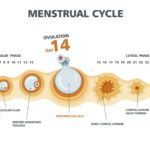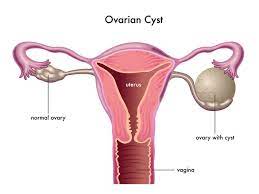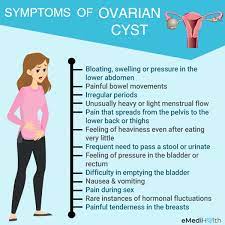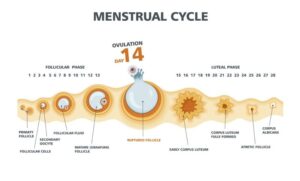Ovarian Cyst
Last week I was lucky enough to get to add one more thing to my roster of what I like to call health related experience. The silver lining is it gives me one more thing a lot of my clients suffer from, and I can have even more empathy towards how they are feeling.
Ever since the vaccine my hormonal system has gone haywire as I posted on my social media. I tracked my labs pre and post vaccine to see what would happen. I did this for two reasons. I wanted to see how my body reacted and because I have had an overwhelming number of women wanting to work with me since they had the vaccine and developed hormonal imbalance or gut related symptoms.
So, each month my periods and ovulation symptoms have gotten progressively worse. I have started to retain an insane amount of water and pretty much feel like I have PMS 4 weeks out of the month. I even went to my OBGYN to get an ultrasound a month ago because I thought I had a cyst rupture.
Well, a month later after seeing no cyst I was lucky enough to have a cyst rupture. HOLY CRAP, now I know what my clients are talking about when it comes to serious pain. It was worse than childbirth!!! I thought I would just send out an email about Ovarian cyst and some of the causes and what you can do to prevent them.
I have so much empathy now for those who have experienced a ruptured cyst. The pain was worse than labor!!
What is an ovarian cyst?
A solid or fluid-filled sac or pocket (cyst) within or on the surface of an ovary.
Ovarian cysts usually disappear in a few months but can cause complications if they don’t.
Most ovarian cysts don’t cause symptoms. In some cases, menstrual irregularities, pain during intercourse, or irregular bowel movements can occur.
Many cysts go away on their own. If not, treatments are typically hormones or surgery.
Ovarian Cyst Symptoms
Most ovarian cysts are small and don’t cause any problems. When there are symptoms, you might have pressure, bloating, swelling, or pain in one side of your lower belly. This pain may be sharp or dull, and it can come and go.
Sometimes, a cyst needs emergency attention. See your doctor right away if you have:
- Sudden, severe belly pain
- Pain with fever and throwing up
- Rapid weight gain
- Bloating
- Dizziness, weakness, or feeling faint
- Fast breathing
These things could mean your cyst has caused the ovary to twist.
Ovarian Cyst Causes
Most cysts are “functional.” They’re a part of your monthly cycle.
- Follicle cyst. Your ovaries usually release one egg each month. It grows inside a tiny sac called a follicle. When the egg is ready, the follicle breaks open and releases it. If the sac doesn’t open, it causes a follicle cyst. These often go away in 1 to 3 months.
- Corpus luteum cyst. Once the egg is released, the empty follicle usually shrinks and helps get ready for the next egg. It becomes a cyst when it closes back up and fluid collects inside. It may go away in a few weeks. But it may bleed or cause pain as it grows.
Others are nonfunctional. In some women, their ovaries make a lot of small cysts. This condition is called polycystic ovary syndrome (PCOS). It can make it hard to get pregnant. Other nonfunctional cysts may be caused by cancer. Ovarian cysts in women after menopause (once your period has stopped) are more likely to be cancerous than those in younger women.
CAN I PREVENT OVARIAN CYSTS?
The answer is yes and no. Most women don’t realize that around the time you menstruate you develop a cyst, known in the medical community as functional cysts. These usually get reabsorbed into the body or burst on their own. It’s all part of our natural cycle.
The problem arises when cysts don’t go away, grow to large sizes, bleed, cause pain or are cancerous (which is rare).
WHAT WOMEN CAN DO
There are many things you can do to help control the formation of a complex ovarian cyst and get treated early if you’re unlucky enough to develop them.
- LEARN ABOUT YOUR FAMILY’S MEDICAL HISTORY
Speak to the women in your family about their reproductive health and medical history. Often the formation of complex cysts or ovarian cancer is genetic.
- LIVE A HEALTHY LIFESTYLE
The best way to prevent disease is to live a healthy lifestyle. This includes eating whole foods and lower carb intake, exercise, not smoking and stress management.
Avoid hormone disruptors and estrogenic foods.
There is evidence to suggest that weight gain and smoking increases the risk of ovarian cancer.
- REGULAR CHECK-UPS
Don’t avoid your regular PAP tests and screening. If you suspect you have a large ovarian cyst or PCOS (Poly Cystic Ovarian Syndrome), talk to your doctor right away. There are often ways to manage PCOS to manage your symptoms and prevent future disease. Catching a cyst before it grows large (as in my case) can prevent invasive surgery and lower your risk of late-stage cancer.
- REDUCE STRESS
There is evidence to suggest that chronic stress plays a role in the formation of disease in the body. According to the Mayo Clinic, chronic adrenaline, and cortisol (the stress hormone) can cause anxiety, depression, digestive issues, headaches, heart disease, sleep problems, weight gain, and memory impairment. We know that weight gain is a risk factor for developing ovarian cancer, so reducing stress in your life can help prevent disease.
I use my Heart Math to work on stress relief and infrared sauna.
Ovarian Cyst Risk Factors
Things that may make you more likely to get ovarian cysts include:
- Hormonal problems. Taking the fertility drug clomiphene (Clomid) to help you ovulate can increase your risk of cysts.
- Pregnancy. The cyst that forms during ovulation may stay on your ovary after you get pregnant and throughout your pregnancy.
- Endometriosis. Cells that usually line the inside of your uterus grow outside it. These wayward cells can attach to your ovary and cause a cyst to grow.
- A severe pelvic infection. If this spreads to your ovaries, it can cause cysts there.
- A previous ovarian cyst. If you’ve had at least one ovarian cyst before, you’re more likely to get others.
- PCOS if you are getting a lot of cysts do not be afraid to ask to be tested for PCOS. This is one of the most common autoimmune conditions that cause lots of cysts. It can go undiagnosed for years.
Ovarian Cyst Complications
Some women can have unusual complications with ovarian cysts. Your doctor might pick these up during a pelvic exam, so it’s important to get regular checkups.
- Ovarian torsion. If cysts grow large, they can make the ovary move and twist. This twisting (ovarian torsion) is very painful.
- Rupture. Cysts can break open, causing severe pain and bleeding, especially if the cysts are large. Vaginal sex and other activities can make a rupture more likely. A ruptured cyst sometimes heals on its own, but often, it’s a medical emergency.
- Infected ovarian cyst. An ovarian cyst can develop in response to a pelvic infection, forming an abscess. If the abscess bursts, dangerous bacteria can spread through your body.
Sometimes, your doctor finds cysts during a pelvic exam. They’ll ask questions about your pain and other symptoms.
A cyst can be fluid-filled, solid, or mixed. To diagnose what kind you have, your doctor may recommend one or more of the following tests:
- Pregnancy test. A positive pregnancy test may mean you have a corpus luteum cyst.
- Pelvic ultrasound. This uses sound waves to make an image of your uterus and ovaries. Your doctor can confirm that you have a cyst, pinpoint its location, and figure out what kind it is.
- Laparoscopy. Your doctor inserts a slim instrument with a light and a camera into your belly through a small cut. They can see your ovaries and remove any ovarian cysts.
- CA 125 blood test. If you have a partially solid ovarian cyst, your doctor may want to test your blood for levels of a protein called CA 125 (cancer antigen 125). It’s often higher in women who have ovarian cancer and in those who have conditions such as uterine fibroids, endometriosis, and pelvic inflammatory disease (PID).
Ovarian Cyst Treatment
Most cysts go away on their own. Your doctor may suggest watching and waiting for changes.
Your doctor can give you medicine for pain. They might also prescribe birth control pills. The hormones in the pills won’t make the cysts go away, but they can help prevent new ones.
Some ovarian cysts need surgery. That includes those that are large, don’t go away, or cause symptoms. You could also need surgery if you’re near menopause, because cysts are more likely to be cancerous. Depending on your case, the surgeon may take just the cyst or the entire ovary.
There are different types of surgery:
- Laparoscopy is for smaller cysts. The doctor makes a tiny cut above or below your bellybutton. A small tool with a camera allows your doctor to see inside, and a different tool removes the cyst or ovary. You probably won’t have to stay in the hospital overnight.
- Laparotomy is for cysts that may be cancerous. It is done with a bigger cut in the belly.
Sick and tired of being sick and tired? Have you tried everything to reach your health goals and nothing is working? Are you ready to get to the bottom of your health? Do you want to optimize your health and feel the best you ever have in years? Book a complimentary discovery call today and get and plan tailored just for you!!

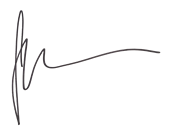
seefitpt@gmail.com
www.seefitpt.com
https://linktr.ee/seefitliving
Functional Diagnostic Nutrition Practitioner, CHEK Holistic Lifestyle Coach, NESTA Certified Personal Trainer, NASM Certified Personal Trainer, ACSM Wellness and Nutrition Coach, and Metabolic Typing
![]()
